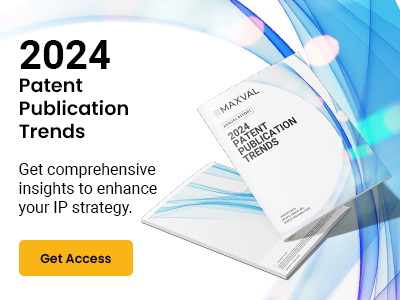When selecting IP management software, organizations must decide what is most important to them, and what a successful implementation will ultimately look like. To accomplish this, organizations should conduct a thorough needs assessment to identify current and future needs specific to their patent group, processes, goals, and vision.
Understanding the specific needs and requirements of the organization, as well as the different user types, is also necessary for developing an RFP that identifies the right provider. Beyond that, organizations should focus on key capabilities that every modern IP management system should have, namely interoperability, security, configuration, ease of use, integrated renewals, reporting, workflow, and implementation.
1. Interoperability: Quite often, organizations are forced to manually collect data from disparate systems to get the information needed for making data-driven decisions regarding prosecution, protection, enforcement, litigation, licensing, and budgets.
By deploying IP management software that can be easily integrated with third-party data and systems, organizations can reduce the need for manual data entry, and improve the efficiency of IP management processes. Moreover, the ultimate goal for any IP management solution should be to create a single source of truth, where all associated IP data resides.
Questions to ask in an RFP include:
- Does the software have the ability to easily integrate with third-party data and systems, including HR, Billing and SSO?
- Does the solution help automate bulk data import from other IP management software or spreadsheets?
- How are email and documents stored and integrated?
2. Security: Robust security measures to protect sensitive IP data is paramount. The first step in ensuring data security is choosing a reputable IP solution provider whose IP management software is backed by a dedicated and professional security team led by a Chief Security Officer (CSO).
Vendors with widely recognized certifications demonstrate their commitment to protecting customer data. Look for vendors that adhere to industry standards such as SOC 2 Type II and ISO-27001. Disaster recovery planning, regular penetration testing, and data encryption should be evaluated, and the software should support Single Sign-On (SSO) or Multi-Factor Authentication (MFA) and granular user permissions.
Specific questions to include in an RFP are:
- Do you have a robust data security policy or framework?
- Which security certifications have been obtained for the software, the company, and the hosting environment?
- How do you ensure your solution is up-to-date with standards bodies (including security, accessibility, and privacy)?
- How do you test your disaster recovery plan? Provide details of any recent recovery run and corrective actions.
- How are data backups created, stored, and protected from unauthorized access or manipulation?
- Do you mandate Single Sign-On (SSO) or Multi-Factor Authentication (MFA)?
- Does the software support granular user permissions?
3. Configurability: IP management software should be configurable, meaning the vendor should be able to tailor their IP management software to meet the specific needs of the organization.
Specifically, an RFP should include questions such as:
- Can the customer make changes to the system or must changes be performed by the vendor?
- What changes can the customer make?
- What are the costs of changes, if only the vendor can make them?
- What are the implications of changes to the system, such as upgrade complications?
- For a configured system, what is the average upgrade time frame? Can versions be skipped?
4. Workflow Automation: IP management software should provide the right information, to the right person, at the right time. This type of workflow automation has the ability to provide structure and security, create consistency, streamline processes and ensure on-time delivery. System managed workflow can also provide reports for continual process improvements based on time and quality checks along the way. That said, any workflow automation must also have the ability to adapt and change over time. Key questions to ask include:
- What workflow automation comes standard?
- Can workflows be created or modified without custom coding?
- Can new workflows be created or modified without having to ask the vendor?
5. Ease of Use: It goes without saying that IP management software should be intuitive and user-friendly. If the system is cumbersome or overly complex, adoption by inventors or others outside of the IP department can become problematic.
Key questions to include are:
- Can the user interface be easily modified to only the needed fields?
- Are manual tasks automated?
- How many clicks does it take to perform simple tasks?
- Can emails be automatically added to the system, or do they need to be manually uploaded or uploaded via a cumbersome plug-in?
6. Integration with PTO: IP management software should integrate with Patent and Trademark Offices (PTOs) as well as their access to critical documents related to inventions. Key questions to ask include:
- Will the IP management software update status, milestone events, and annuities from PTO sites?
- Can the software validate portfolio data and status from official PTO websites, including but not limited to, Private PAIR, Patent Center, Global Dossier, UPC, Trademark Status & Document Retrieval (TSDR) or Global Trademark Offices?
7. Integrated Renewal Capabilities: Although some providers offer renewals, they are often managed by a separate system which requires time-consuming manual exports and reconciliations.
When it comes to renewals, key questions to ask include:
- Are renewals managed from within the IP management software?
- Is the system capable of integrating or importing annuity payment information into their financial system to approve/issue the advance payment to avoid delays?
- How frequently are the renewals monitored and updated?
- What risk mitigation measures are there to avoid data entry errors when exchanging information about our portfolio to your renewal payment system?
- What is your currency exchange rate?
- Can annuity costs be forecasted for the life of the asset?
8. Robust Data Reporting: IP management software should provide options for advanced reporting and analytics to easily transform data into actionable intelligence, allowing organizations to assess ongoing business performance and devise effective business and IP strategies for the future. Reports should be able to be created by any user, and should not require special knowledge of SQL or other technical expertise.
Questions to ask include:
- What types of reports are available, and are they customizable?
- Does the software provide access to reporting dashboards?
- Can any user create a report?
- Can any user run a report?
- Do I need to know a special code to create a report?
- Can I report across my portfolio (cross-table reports)?
9. Implementation: As the success of IP management software is contingent upon its successful implementation, it is imperative to ask questions, including:
- How are implementation projects handled?
- What does a typical implementation timeline look like?
- How is data migration addressed, and who is responsible for it?
- What support is provided in the immediate post go live timeframe?
- How much time does our team have to dedicate to implementation?
- What responsibilities will our team have during the implementation process?
Final Thoughts
Implementing IP management software is a major undertaking, but one that can result in significant improvements to IP programs as a result of automating and streamlining processes, and enabling visibility and transparency to drive informed decisions. Understanding what is needed and asking the right questions can help ensure that the expected benefits can actually be achieved.




